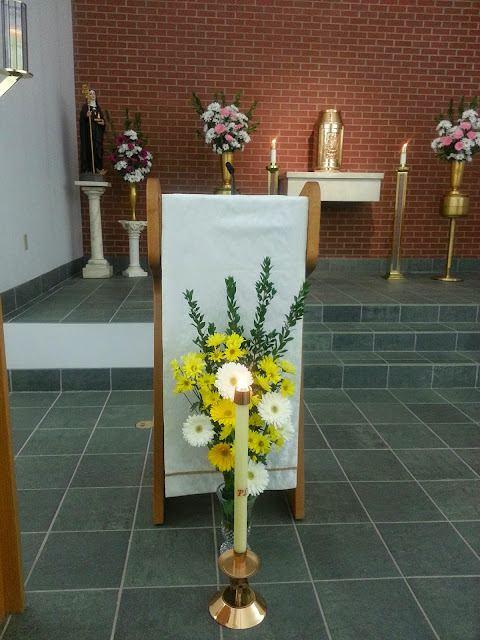St. Walburga was a Benedictine
Nun born in England in 710, who worked with her uncle, St. Boniface, in
Christianizing Germany. Walburga was
born in Dorset, England, in a noble Anglo-Saxon family. Walburga's mother is known as Wuna and
tradition has also called her "Blessed Wuna" though there is no
canonical evidence to support this. But
Richard, her father, Willibald and Wunibald (her two brothers) and Walburga
have all received full recognition as Saints by the Church.
Walburga was
brought up from her earliest years by the nuns of Winborne. Winborne was a double monastery (a form of
monasticism widespread at the time); the nuns being entirely separate from the
monks and usually governed by an Abbess.
St. Boniface and
St. Lioba, relatives of Walburga, entered religious life at an early age. In 740, St. Boniface appealed for a group of
Anglo-Saxon women to help on the mission in Germany. St. Lioba, a cousin of Boniface, appears to
have been in the first group. Walburga
was to follow her.
The remains of St.
Walburga were solemnly brought to Eichstaett (between 870 and 879) where they
were placed facing the choir, beneath the little Holy Cross Church over which
the present Church of St. Walburga stands today. During the translation of her relics, St.
Walburga's bones were beaded over by a liquid.
This flow of oil appears yearly between the 12th of October (the feast
of her translation) until her anniversary of her death, February 25.
The Church
and Crypt of St. Walburga are part of our motherhouse in Eichstaett, Germany
not far from Munich. The "oil"
is a clear liquid resembling water in appearance. As the Walburga oil only flows for a short
time each year, the nuns at Abtei St. Walburg have mixed the oil with holy
water as a means of making it available to as many individuals as possible.


